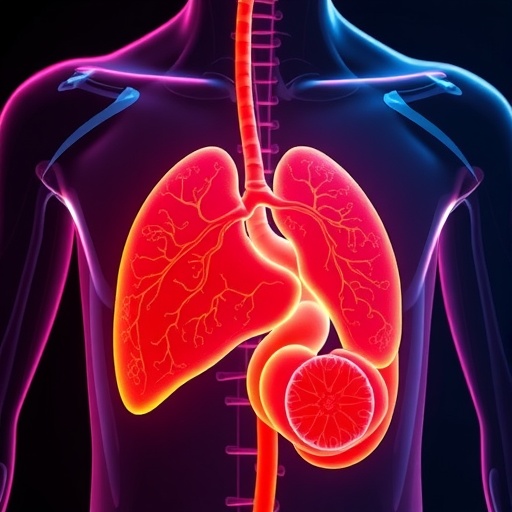In an era where technology enhances every facet of life, the field of organ transplantation is experiencing a revolutionary transformation through data-driven methodologies. A recent study conducted by Gnanasambandan and Balasubramanian introduces a pioneering framework that utilizes gradient boosting and adaptive genetic algorithms to optimize the organ allocation process. This innovative approach not only promises to enhance the efficiency of transplants but also aims to make the allocation process fairer.
The realm of organ transplantation has long grappled with challenges surrounding scarcity, inequity, and the complexity of matching donors with recipients. Traditional methods primarily depend on waitlists that are often overloaded, leading to increased mortality rates among patients awaiting vital transplants. The research by Gnanasambandan and Balasubramanian addresses these critical issues head-on, proposing a model that leverages machine learning to improve decision-making in organ allocation.
At the heart of this novel framework is gradient boosting, a powerful machine learning technique known for its predictive accuracy. By analyzing historical data regarding donor-recipient matches, the model learns from previous transplant outcomes to predict the success of future matches more effectively. The researchers meticulously curated data sets that include patient demographics, medical histories, and previous transplant records to train the model. This data-centric approach enables the system to identify patterns that may not be immediately apparent to human decision-makers.
Incorporating adaptive genetic algorithms further refines this model by introducing a mechanism akin to evolutionary biology. These algorithms iteratively improve upon themselves, testing various allocations and adapting based on outcomes. The interplay between gradient boosting and genetic algorithms creates a dynamic system that not only learns from past data but continuously evolves to address new challenges and variables in organ transplantation.
One of the standout features of this research is its commitment to fairness in organ allocation. Traditionally, patients are often considered for transplants based on a variety of factors, including urgency, compatibility, and geographical location. However, these factors may inadvertently introduce biases that favor certain demographics over others. By integrating fairness into its core, the new framework seeks to level the playing field, ensuring that all patients have equitable access to life-saving organs, irrespective of their background.
The implications of this research extend beyond academic curiosity; they resonate deeply within the fabric of society. The allocation of organs must be navigated with ethical considerations at the forefront. In addressing these ethical dilemmas, Gnanasambandan and Balasubramanian present their framework as a tool not only for medical practitioners but also for policymakers concerned with enhancing the efficiency and fairness of the transplantation process.
Transitioning from theoretical research to practical application is often fraught with challenges. However, the potential for real-world implementation of this data-driven model is underscored by its adaptability. As healthcare systems worldwide strive to integrate technological advancements, the framework proposed by the authors could seamlessly fit into existing infrastructures to enhance the organ transplant process.
The research also recognizes the importance of continuous monitoring and feedback within the implemented system. By incorporating performance metrics, the model can track its accuracy and effectiveness over time, allowing for ongoing refinements. This adaptive aspect guarantees that the system remains responsive to changing medical practices, patient needs, and emerging technologies.
Moreover, as healthcare moves toward a patient-centric model, this framework aligns perfectly with the need for personalized medicine. By taking into account individual variations in patient responses and medical histories, the model ensures that each transplantation decision is tailored to optimize outcomes for each unique situation. This shift represents a significant evolution in how we think about treatment, moving away from a one-size-fits-all approach toward a more nuanced understanding of individual patient needs.
As awareness around organ donation continues to grow, the framework’s potential for increasing organ donation rates should not be overlooked. By making the transplant process more efficient, the model could encourage more individuals to consider registering as organ donors, knowing that an effective allocation system is in place to ensure organs go where they are most needed. This potential ripple effect could significantly alleviate the current organ scarcity crisis that plagues many countries.
The importance of collaboration among various stakeholders—medical professionals, ethicists, and data scientists—is emphasized throughout the study. The multifaceted nature of organ transplantation calls for an interdisciplinary approach to address the myriad challenges faced in this arena. By fostering dialogue among these groups, the framework stands to benefit from diverse perspectives and expertise, ensuring that it is robust and viable.
As the research by Gnanasambandan and Balasubramanian gains traction, the anticipation for trial implementations grows. Early-phase testing will shed light on the practical strengths and limitations of the model, informing future iterations. If successful, this framework could become a benchmark in organ transplantation, paving the way for similar methodologies in other critical healthcare areas that rely on efficient resource allocation.
In conclusion, the innovative framework proposed by Gnanasambandan and Balasubramanian represents a beacon of hope in the landscape of organ transplantation. Through the synthesis of gradient boosting and adaptive genetic algorithms, this approach not only enhances fairness but also optimizes efficiency in allocating precious resources. As the medical community continues to embrace the promise of data-driven solutions, this research could very well revolutionize how we approach organ transplantation—saving lives and promoting equity like never before.
Subject of Research: Organ transplantation optimization through machine learning.
Article Title: A data-driven framework for fair and efficient organ transplantation using gradient boosting and adaptive genetic allocation.
Article References:
Gnanasambandan, S., Balasubramanian, V. A data-driven framework for fair and efficient organ transplantation using gradient boosting and adaptive genetic allocation.
J Artif Organs (2025). https://doi.org/10.1007/s10047-025-01512-z
Image Credits: AI Generated
DOI:
Keywords: organ transplantation, machine learning, gradient boosting, adaptive genetic algorithms, fairness, efficiency, data-driven solutions.




